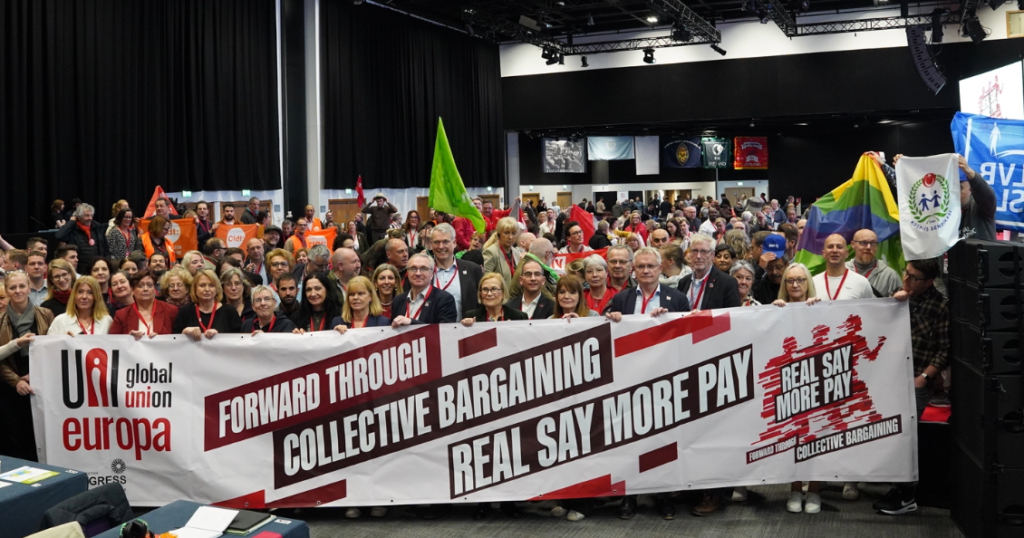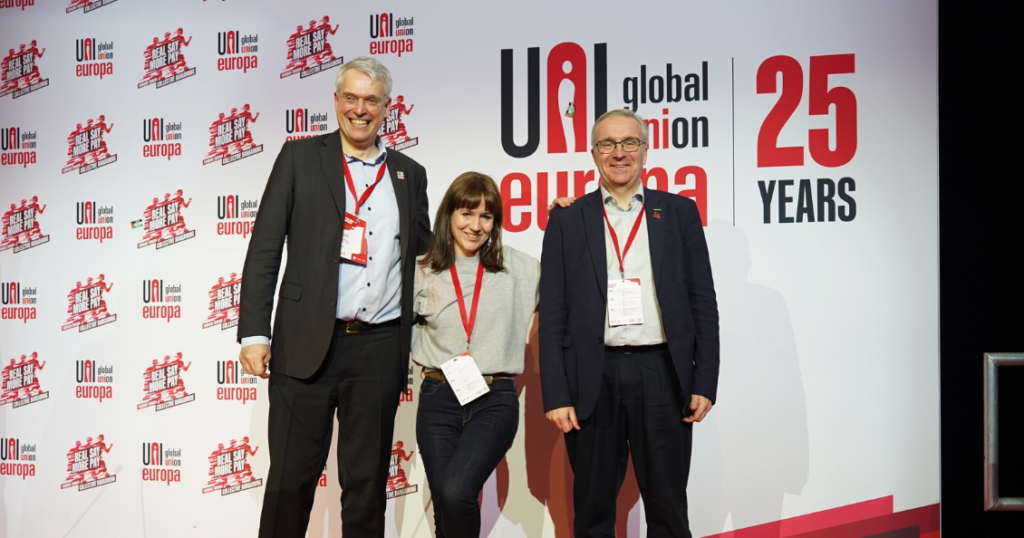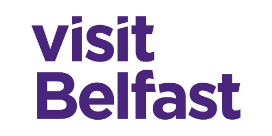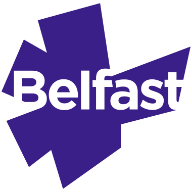Antwerp Conference addresses collective bargaining in remote work era
A report was also launched at the conference, available for download below, which includes practical tools such as a checklist for negotiating collective bargaining agreements on remote work.

Over 50 trade union leaders, experts, and representatives from nearly 20 countries convened in Antwerp, Belgium, on 14 November to address the challenges of organising and bargaining collectively in an era increasingly dominated by remote work. The conference, organised by UNI Europa, marked the conclusion of the EU-funded project “Addressing Remote Work through Collective Bargaining and Organising” (ARCO).
Participants from the finance and ICTS sectors highlighted the need for robust trade union strategies to protect workers in sectors transformed by remote work. While remote work has created benefits for workers – such as improved work-life balance and greater workforce inclusion – it has also led to challenges such as isolation, increased workloads, and inequities in who can benefit from flexible arrangements.
Oliver Roethig, Regional Secretary of UNI Europa, opened the conference by underscoring the importance of equitable remote work policies. “Workers deserve a real say and more pay — and shouldn’t pay extra for working from home,” he said, pointing to the risks of overwork. Data shows that remote workers are six times more likely to work outside regular hours, a trend that UNI Europa and its affiliated trade unions argue must be addressed to protect workers’ rights.
Legislative and cultural change
Esther Lynch, General Secretary of the European Trade Union Confederation (ETUC), emphasised the need for EU-wide legislation to address emerging challenges. Central to her address was the call for a “right to disconnect,” a policy designed to shield workers from the encroachment of work on personal time.
Heejung Chung, Professor of Work and Employment at King’s College London, reflected on “the flexibility paradox” when considering why flexible working leads to more (self-)exploitation. While acknowledging the need for new leadership models, she insisted that individual policies are counterproductive. Instead, this paradox needs to be addressed through collective action and bargaining.
Kalina Arabadjieva, a Senior Researcher at the European Trade Union Institute (ETUI), spoke to the cultural shifts required for fair remote work practices. “A telework culture should be normalised to ensure fairness for everyone – for those who embrace remote work and those who do not,” she said, reflecting a broader consensus among the attendees.
UNI Europa has long been at the forefront of advocating for workers’ rights in remote work. In 2021, at the height of the COVID-19 pandemic, we published the “UNI Key Trade Union Principles for Ensuring Workers’ Rights When Working Remotely.” The guide offers a blueprint for collective bargaining agreements that safeguard workers’ rights and conditions amid the rapid shift to remote work.
A new report on remote work
The ARCO project built on this legacy with two workshops held earlier this year. The first, in Paris, focused on organising remote workers and negotiating strong agreements, while the second, in Dublin, explored the impact of remote work on gender, diversity and inclusion.
The outcomes of these workshops were discussed during the conference, with UNI Europa Organising Director Ben Egan, Adrian Soare (FSAB, Romania) and Hanneli Lindholm (Swedish Engineers) reflecting on organising remote workers, while UNI Europa Equal Opportunities Director Amel Djemail, Frédéric de Fondaumière (FBA-CFDT, France) and Riccarda Darmanin (GWU, Malta) showcased trade union actions to stop remote work from having a negative impact on women and minorities in the workplace.
During the Conference, the external project researcher Dr Nicole Helmerich presented the outcome of these workshops and the concluding project report “Trade Unions in the New World of Remote Work: The Challenges and Opportunities of Bargaining Collectively in Finance and ICTS”. The report, available to download below, includes practical tools such as a checklist for negotiating collective bargaining agreements on remote work.
Download the report in English, Swedish, Italian, Croatian, French, Spanish, German, Czech.
[embeddoc url=”https://unieuropaconference.org/wp-content/uploads/sites/2/EN_ARCO-1.pdf”]





